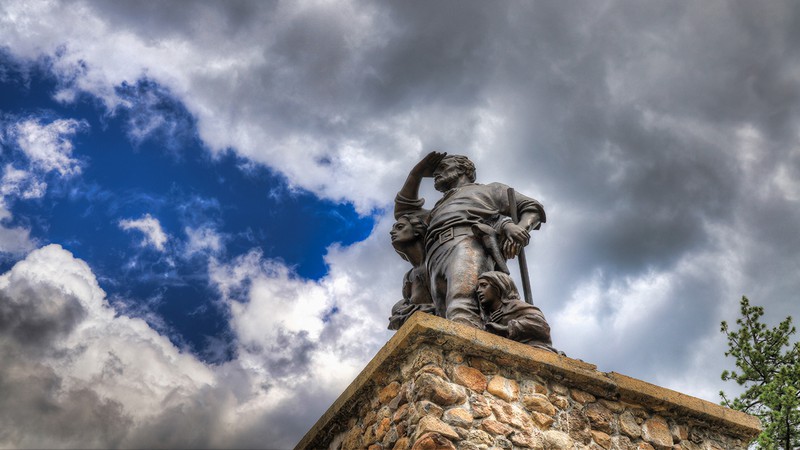
The Pioneer Monument at Donner Pass marks a museum and state park dedicated to the emigrants who crossed the Sierra Nevada. Izzet Safer Shutterstock
High in the Sierra is this pistol-shaped piece of land, with the barrel aimed at Nevada state—it took the name “Nevada” (snowy) years before California’s neighbor did. The county seat is well-preserved Nevada City, but the largest town is Truckee. (There’s a story that the word “Truckee” means “Okay” in Paiute, which is yet another western legend that might not stand up to scrutiny.) Another place of note is Grass Valley, a haven of eclectic types. One is harpist/singer Joanna Newsom; another is the international courtesan Lola Montez, who lived there in the early 1850s. Nevada County’s highest peak—9,100-foot Mount Lola—is named after Montez. She was a special friend to everyone from Franz Liszt to HRH King Ludwig I of Bavaria, and maybe Alexandre Dumas fils, too.
There are abundant resources for those curious about Nevada County’s past; here are some of the standouts.